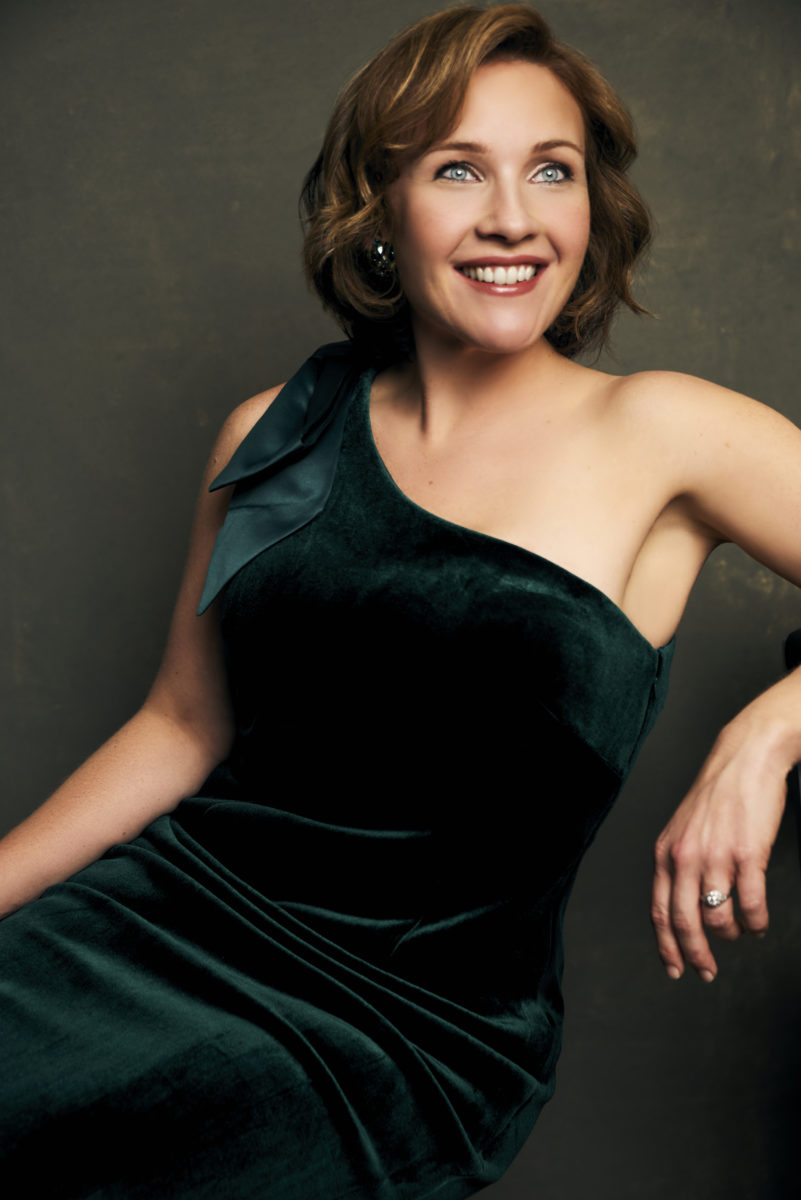As we have noted elsewhere in Cultural Currents, Mezzo-soprano Sasha Cooke has earned acclaim for a wide variety of roles with San Francisco Opera, and she stars in Hansel and Gretel, during this holiday season.
Here is the interview we promised.
Cultural Currents: You have played Hansel to great acclaim with Seattle Opera and LA Opera. Are there any new perspectives being brought to the forefront in this one?
Sasha Cooke: What’s most interesting about returning to a piece is how the individual actors impact the show and bring their own ideas. So what has changed the most for me with this production is experiencing this wonderful new cast. Heidi Stober may be the best Gretel I’ve ever seen and when we are onstage together I often feel like a married couple in the sense we are two halves of the same entity. I almost don’t even look at Heidi because I feel so connected to her onstage. In the production, I really appreciate the focus on poverty which is at the heart of the original Grimm. In the overture, where normally no stage action takes place, we have a couple tableaux of the family and their decline from having food on the table to having almost none. It’s very poignant and moving, especially in a city like San Francisco, where one doesn’t need to look far to understand that struggle.
CC: We last saw conductor, Christopher Franklin, when he was here to lead the orchestra and the SFO Adler Fellows. What is it like working with him?
Cooke: Christopher is wonderful to work with! He is one of the most friendly and open conductors. It’s easy to feel really comfortable with him, which isn’t always the case with opera conductors!
CC: Also on hand will be SFO’s chorus director and conductor, Ian Robertson. He told us in an interview that his chorus “trains like athletes” Do you have a similar regimen?
Cooke: Absolutely! Like athletes, we really have to train and keep in shape as opera singers. Everything we do affects our singing. I try to not take it all ‘too’ seriously but what you eat, how you sleep, how much socializing and of course exercise all take a role in one’s vocal picture. I usually work out before a performance because it warms up the body and the voice in a way that a vocal warm-up can’t do. The breath naturally is the most important ingredient of singing and exercise awakens it in the best way. Also, it turns out exercise hydrates the voice.
CC: The San Francisco Symphony is producing the world premiere of Rilke Songs, a six-part song cycle based on the lyric poems of Rainer Maria Rilke which you will sing. This was composed by MTT, who will also conduct the orchestra. How does one prepare for such a daunting challenge?
Cooke: I suppose I find this less daunting because I’ve sung a lot of new music and I have been fortunate to have some close relationships with composers. Michael is a wonderful composer which I think most people don’t realize. So most of all, I’m looking forward to celebrating him and his music. He has been one of the greatest gifts in my life and there is no one I’ve worked with more. What will be a little daunting that month is that I have two world premieres back to back because the following week I sing Jake Heggie’s Intonations with the Violins of Hope at Music at Kohl Mansion. It will be a whirlwind couple weeks but I’m really looking forward to it.
CC: We understand that you are an avid reader of poetry. Any particular poets who may especially appeal to ferry riders and others who spend time on the Bay?
Cooke: I love this question and I don’t think anyone has ever asked me so thank you! Jane Kenyon has been on my mind a lot lately and in my airbnb here in San Francisco there’s a wonderful collection of one of my favorites, Robert Frost. And the other day I discovered an amazing Jane Hirshfield poem called “Let them not say.”
CC: The (R)evolution of Steve Jobs is being staged by SFO in the summer season. Given that some members of the audience will have an emotional bond with this man, may we expect a different approach to the narrative?
Cooke: This is probably the most amazing aspect of the opera, that everyone comes in having a connection to the subject matter but it’s not what you expect. It’s truly an every-person opera and less about what Steve Jobs specifically was or did. It’s more focused on the emotional truths and struggles we all share and how life is determined less by what we achieve professionally and more by what we create and nurture personally. I was struck by the opening sequence in the documentary about Steve Jobs called “The Man in the Machine.” It begins with footage of the mourning that happened worldwide following his death and just the fact that nearly the entire world was and continues to be touched by this one man.

